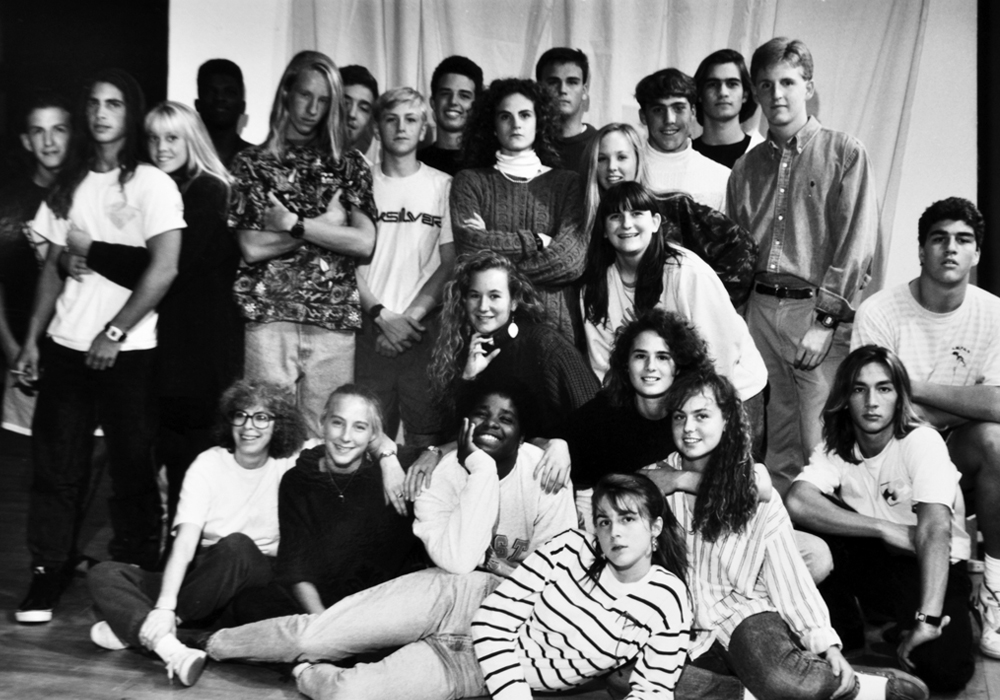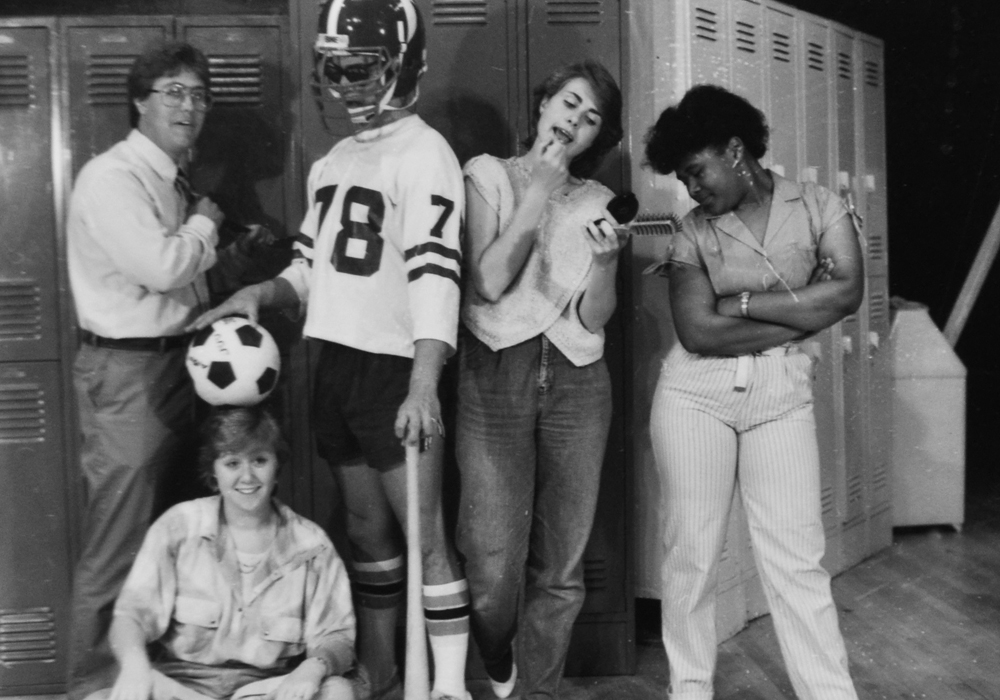Chapter One: The Beginning
Gwen Freeman Lehman began her teaching career in the fall of 1968 at South Hagerstown High School in Hagerstown, Maryland, teaching ninth and eleventh grade English. In the fall of 1969, she accepted a position teaching English and psychology at Stephen Decatur High School in Berlin, Maryland, and moved to the Eastern Shore. She remained at Stephen Decatur for the next forty-six years. At the time she began her career in Worcester County, there were no theatre classes being offered at any of the county’s schools. There were theatre performances. Stephen Decatur High School was producing a junior class play and a senior class play to raise money for the prom and graduation respectively. When the teachers who had been sponsoring these performances decided to leave for careers elsewhere, the school’s principal began to look for someone to take over the responsibility of directing the plays. During a faculty meeting, Principal Gladys Burbage asked if anyone was interested. Gwen was the only one who raised a hand.
As a result of indicating an interest, she was asked to meet with Mrs. Burbage. Emboldened by graduate courses she was taking in theatre and by the educational philosophy of one of her theatre professors, Gwen told Mrs. Burbage that she was very interested in theatre and would very much like to start a theatre program at SDHS. She rather forthrightly stated that she was not interested in directing plays as fundraisers and would only direct if she could teach a class in theatre. Mrs. Burbage responded by asking her to write a curriculum proposal. With the full support of Mrs. Burbage, Mrs. Freeman Lehman’s proposal was accepted. Thus, Gwen Freeman Lehman became the first theatre teacher in Worcester County.
Beginning with just one class and no budget, Gwen was off and running. She had inherited a make-up kit (which is still at SDHS and being used to this day), a few canvas-covered flats, more footlights than fresnels, no functioning dimmer board, and an auditorium that had seen better days. None of that mattered. She was eager and excited. From the first, theatre students at SDHS began producing plays, albeit plays that were short, experimental, and simple in design. Gwen was learning along with her students, feeling her way along, trying things, and having fun with it. It wasn’t long before the theatre class became one of SDHS’ most popular electives. The word was spreading. Within a few years, there was so much demand for a place in the class that students had to be turned away. This was a situation with which no one was happy. One year, fifty students were allowed to enroll and a second teacher, Mrs. Joanne Cathell, teamed with Mrs. Lehman to teach the class. It was an enjoyable collaboration.

A class of fifty was unusual and was not encouraged. Enrollment in the class was generally capped at thirty-seven. Team-teaching a very large theatre class was limited to just one year. Mrs. Freeman Lehman did accept forty-four students during one school year (twenty-two girls and twenty-two boys) . Though really big, it was a great group of kids and proved to be a very productive year.
These large numbers demonstrated a strong interest in theatre at SDHS. In an effort to serve more students, a second theatre course was started. Open only to freshmen and sophomores, Introduction to Theatre was designed to give students an academic background in theatre: its history, classic literature, jargon, and the development of its spectacle elements. The original theatre class, Theatre Production, was then limited to only juniors and seniors.

Demand for admittance to both classes continued to grow. Eligibility requirements were developed to assist in screening students for admittance to the class. While students were never required to audition, they did need to meet the following criteria: good attendance, ability to maintain grades at a “C” or better in all of their classes, and a willingness/ability to attend evening rehearsals.
Students could move from Introduction to Theatre to Theatre Production only if they did well in the introductory program. Doing well meant good attendance, completion of written assignments, dependability, being able to work well with others, as well as having a talent for any of the many aspects of production work.
Plays were now being produced by two groups of students. This meant that a program that had begun with two rather modest productions a year grew into a program that was producing four productions a year, then six productions a year, with an added “traveling” show for an elementary school in Sussex County, Delaware. Tremendous support for the theatre program at SDHS was always there and unwavering, from principal Gladys Burbage, guidance counselor Dennis Montero, reading coordinator Betty Lynch and special projects coordinator Lana Williams at the Central Office, to Gwen’s succession of English supervisors including Strayer Hancock, Dr. Walker, and Geneva Cannon, and a series of WCPS Superintendents and Assistant Superintendents. While the theatre program continued to grow, Mrs. Freeman Lehman was also teaching a variety of English courses and psychology. Over the years, Mrs. Freeman Lehman taught eighth, ninth, tenth, eleventh and twelfth grade English, as well as Creative Writing and Communication Arts. At a time when the school offered a series of one semester English courses, she taught Humor in Literature, The Novel, and a class in The Humanities.

As psychology was also becoming one of SDHS’ most popular electives, the number of sections of psychology Gwen was teaching began to grow. This resulted in a reduction of the number of sections of English she was teaching. As psychology was viewed as a very tough class, a supervisor began to press for the addition of an Advanced Placement level psychology course to the curricular offerings.
SDHS was successful in beginning an AP Psychology course with Mrs. Freeman Lehman as the instructor. Soon, Gwen was teaching nothing but psychology and theatre. As enrollment in psychology classes continued to grow, additional instructors were added to satisfy student demand for both Psychology and AP Psychology. Eventually, Mrs. Lehman was teaching Introduction to Theatre, Psychology, Theatre Production, and Advanced Placement Psychology courses. While she had always enjoyed the English classes she taught, this was for her a dream schedule and it kept her in the classroom for many, many years.
